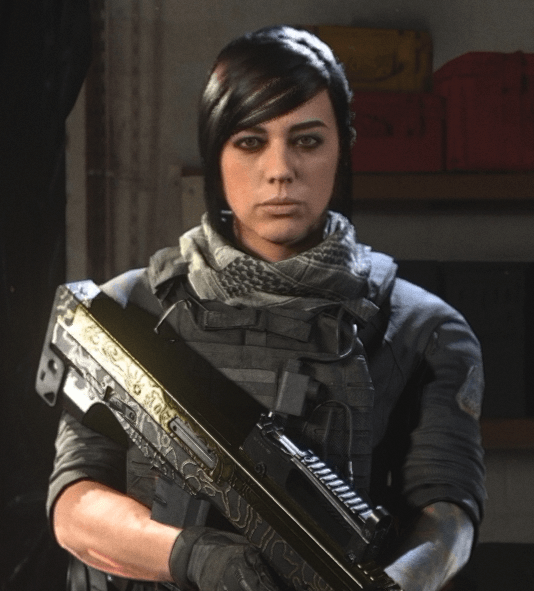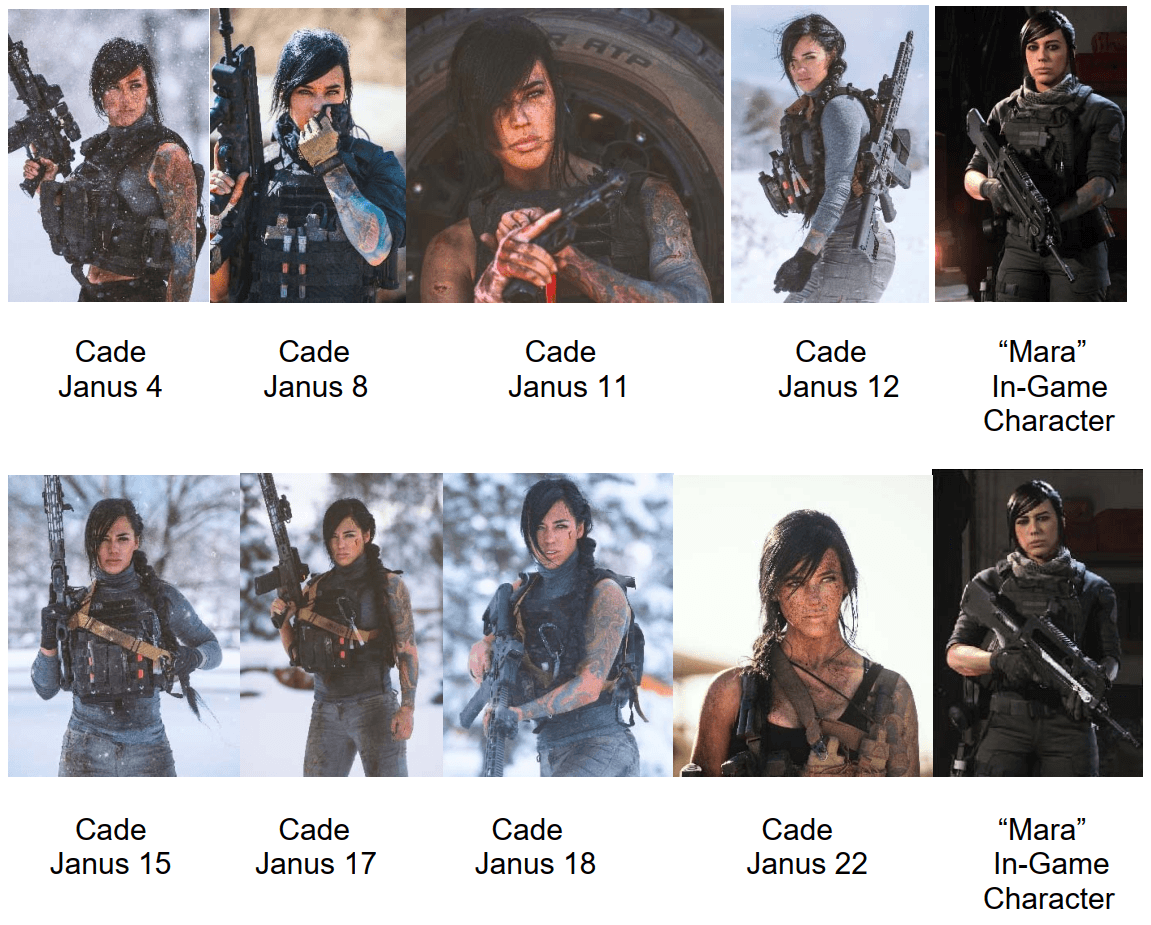Early February, writer, photographer and videographer Clayton Haugen filed a copyright infringement lawsuit against Activision, Infinity Ward, and Major League Gaming Corp.
Haugen claimed to be the copyright owner of two literary works and 22 photographs of a character he named ‘Cade Janus’, the main figure in his story ‘November Renaissance’.
He hoped that his story would be made into a film and in 2017 he hired actress, cosplayer, and Twitch streamer Alex Zedra (aka Alex Rogers) to portray ‘Cade Janus’. A series of photographs were taken, which together with his story were presented to film studios, published on Instagram, and in a series of calendars.
In his complaint, Haugen alleged that the defendants were on the lookout for a “strong, skilled female fighter” for their game Call of Duty: Modern Warfare but instead of creating their own character, used contractors to hire Zedra. She was allegedly asked to obtain and wear the same clothing and gear used in the original photoshoot, the same makeup artist was hired, and photographs from the original shoot were used as a framing guide, Haugen added.
“The resulting photographs were intended to be, and were, copies of Haugen’s Cade Janus Photographs,” the lawsuit claimed.
As a result, Haugen said that the defendants had breached his exclusive right to make copies and derivatives of his work and his exclusive right of distribution, demanding all profits attributable to the alleged infringement as compensation.
Activision, Infinity Ward and Major League Gaming Fire Back
This week the defendants filed their answer to the complaint, admitting various facts such as presenting a female fighter in their game, hiring Zedra/Rogers directly and makeup artist Aeni Domme through a contractor. The companies further admit to using the ‘Mara’ character to market downloadable content for Modern Warfare and acknowledge various claims about the companies’ corporate structures.
In respect of most other claims made by Haugen, the companies claim that they “lack knowledge or information” sufficient to “form a belief” as to the truth of the allegations so summarily deny them. However, the defendants did provide some meat in their response.
The companies acknowledge that certain works created by Haugen are registered at the Copyright Office but flat-out deny that they “copied Haugen’s Cade Janus photographs without his knowledge or permission, had access to his Cade Janus photographs, or used them as a guide to create ‘Mara’. Claims that the makeup artist was instructed to copy the hair and makeup of Janus are also denied.
In respect of Haugen’s claim that he never authorized the defendants to make copies of any part of his ‘November Renaissance’ works and his Cade Janus photographs, including the depictions of the character Cade Janus, the gaming companies admit that Haugen never gave them a “direct, express license to any work identified in the complaint.”
Nevertheless, they deny all allegations of copyright infringement.
Haugen “Not Entitled” To Jury Trial, Affirmative Defenses
In their response, Activision, Infinity Ward, and Major League Gaming Corp first object to Haugen’s call for a trial by jury.
“A claim for infringer’s profits is an equitable one and is not triable of right by a jury. Furthermore, a claim for statutory damages is not triable of right by a jury,” they write, adding that in their opinion, Haugen is not entitled to any of the relief requested in the complaint.
They also provide a laundry list of affirmative defenses that could excuse them from liability, even if Haugen’s allegations were true. Among these are failure to state to a claim on which relief can be granted but also a free speech and/or fair use angle.
“Any use of Plaintiff’s copyrighted materials is protected by the First Amendment of the United States Constitution and/or 17 U.S.C. § 107,” the companies write, adding that Haugen has “unlean hands” after engaging in inequitable behavior.
The gaming companies also state that Haugen’s claims are barred in whole or in part by the doctrine of laches, suggesting that the complaint had been filed in an untimely manner and as a result, an equitable claim can not be brought. The defendants also list the doctrine of acquiescence, which infers a form of permission that results from inaction over an extended period of time, along with a failure to mitigate.
On the rights front, the Modern Warfare creators say that Haugen is barred from making a claim since he does not own the exclusive rights to “some” of the works, noting that the ‘Mara’ character was independently created and the defendants “had an implied license” to use the materials at issue.
Perhaps more fundamentally, the gaming giants note that Haugen is barred from pursuing claims in the Eastern District of Texas because he agreed to the exclusive jurisdiction of state or federal courts in Los Angeles to resolve claims for copyright infringement.
The answer from Activision, Infinity Ward and MLG can be found here (pdf)








